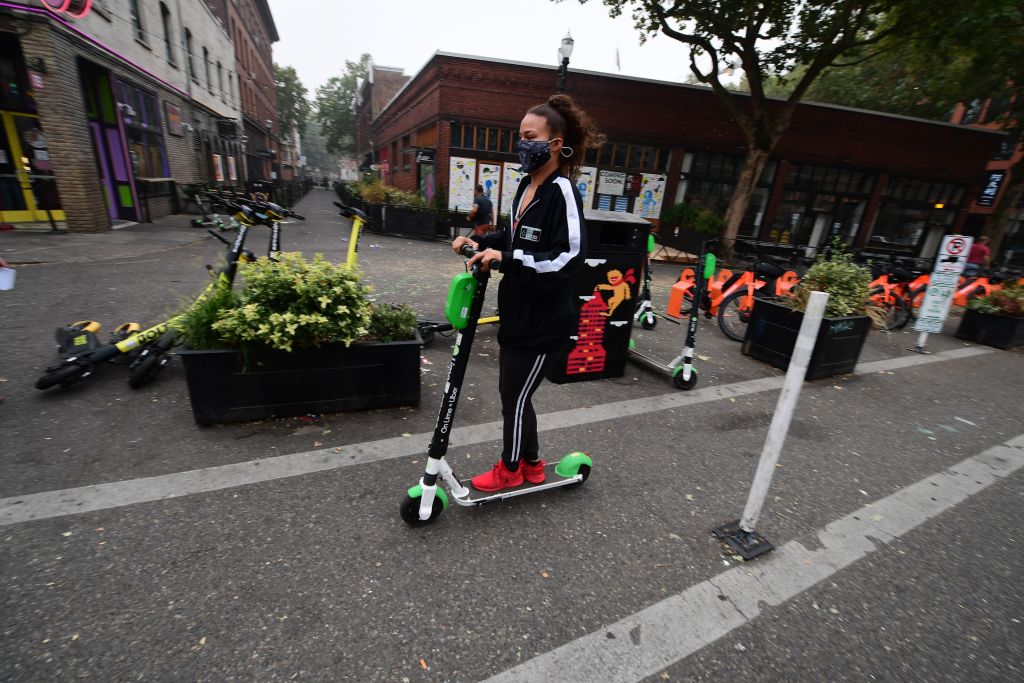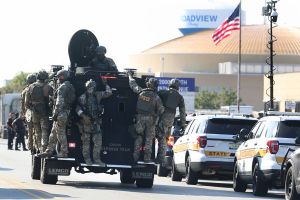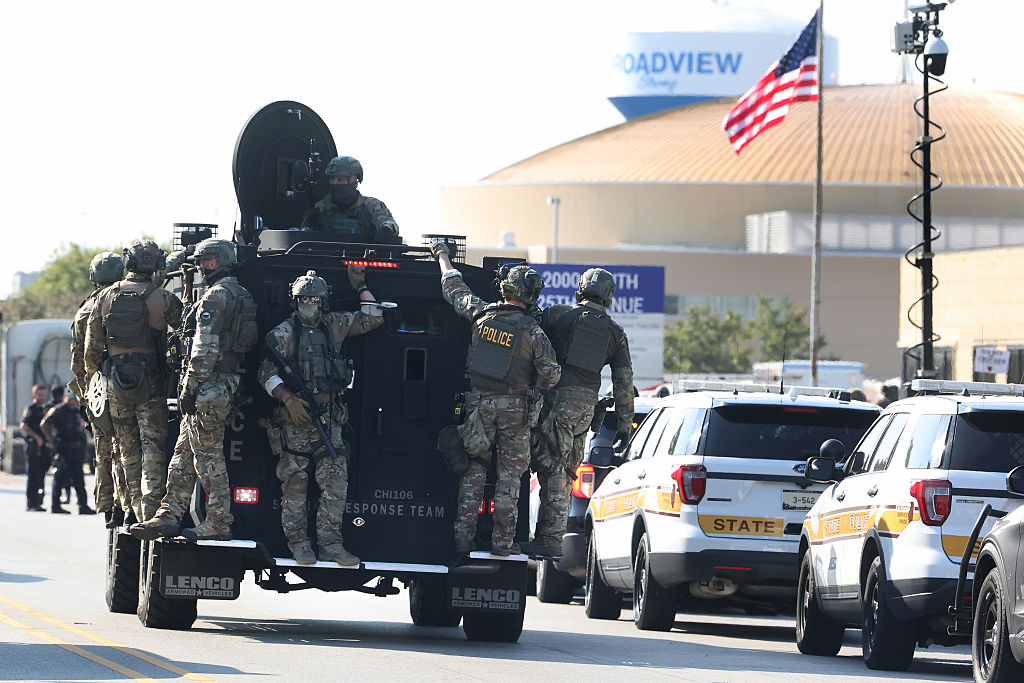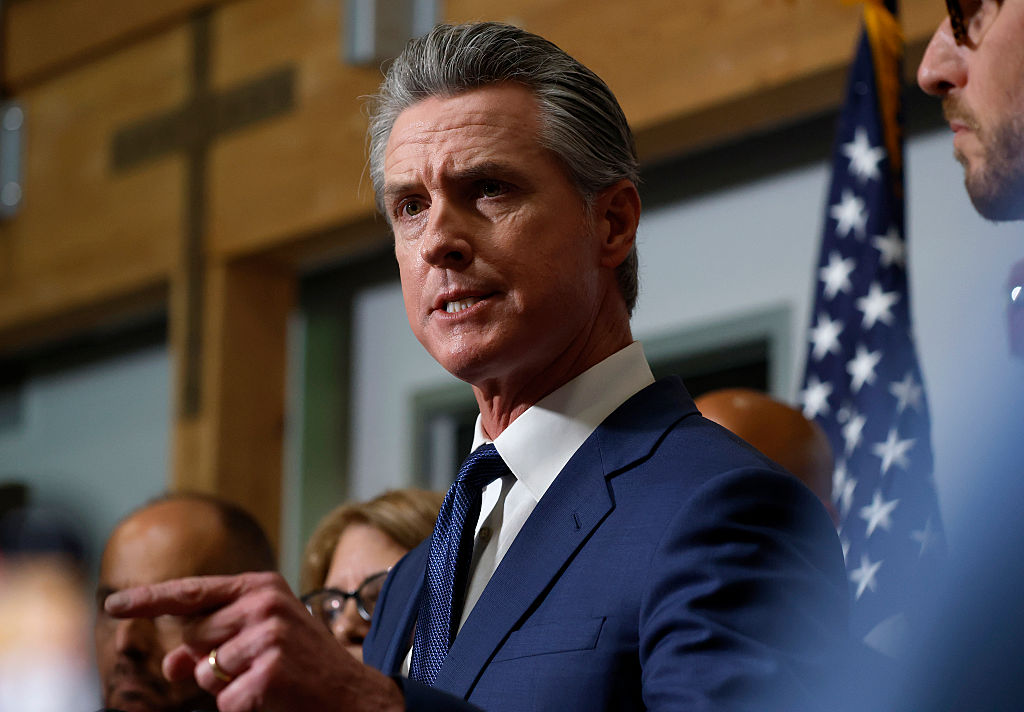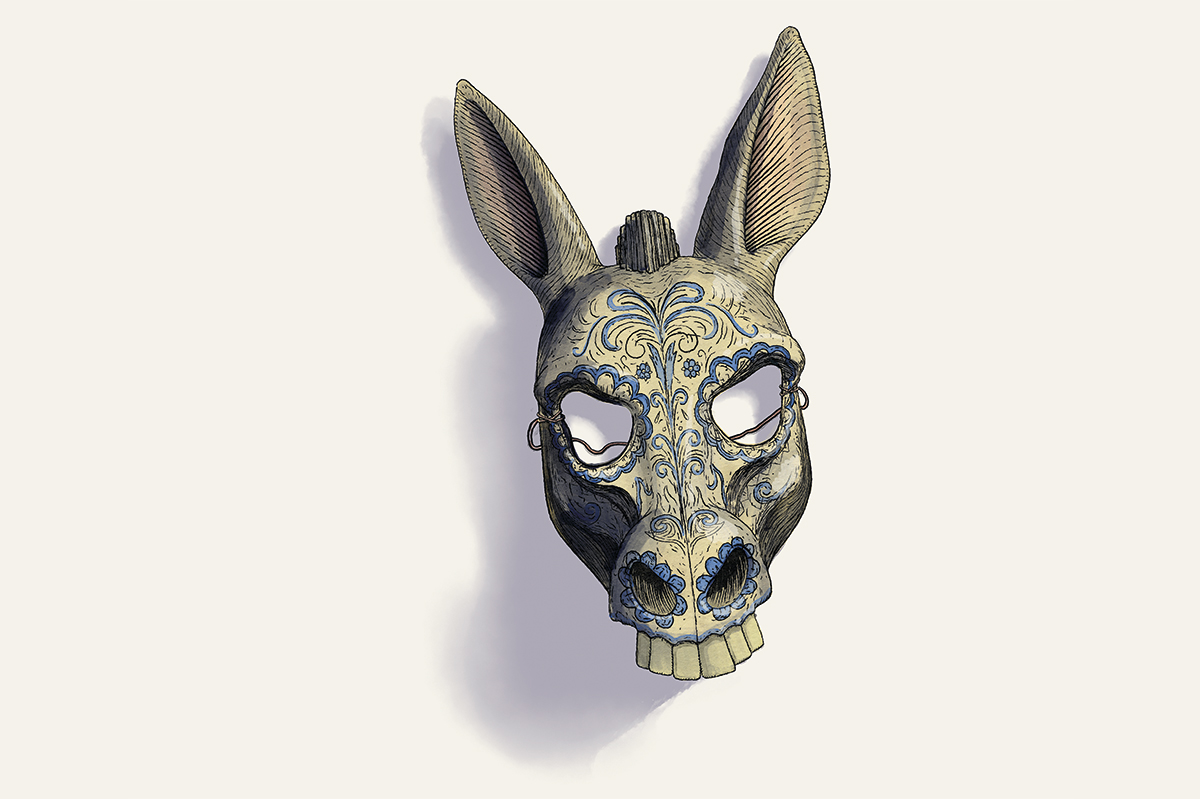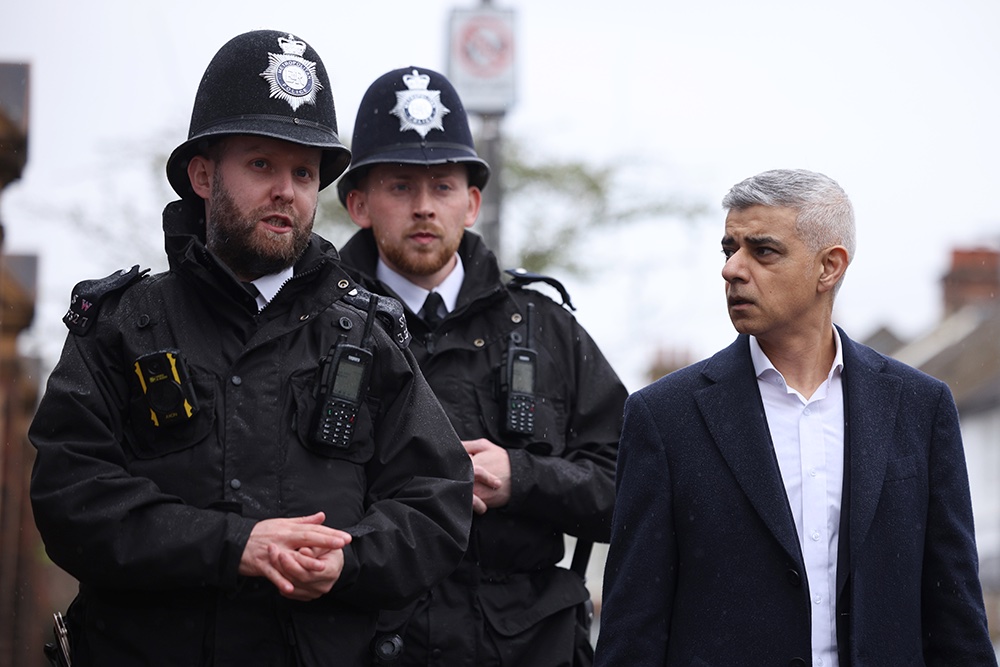Portland is one of the nation’s most beautiful cities, positioned at the confluence of the Columbia and Willamette rivers. But fading livability hangs over it like a raw gray drizzle. After years of political mayhem and an explosion of drug-related homelessness and crime, the city’s fabled quality of life is plunging. Every taxpayer in the 2.5 million metro area knows it.
Portlandia had its lure and charms, and yesterday’s salons and eateries still look modish. But they’re closed, chairs stacked, thank you for your patronage. Those Patagonia-clad tourists and corporate executives on generous expense accounts won’t be coming back soon. On a warm, cloudless autumn day, the city’s once spotless downtown should be bustling but…and it takes a while for this to click…it’s almost empty.
Almost. Junkies, vagrants, alkies, and crazies shamble everywhere. The dazed and tattered wander into high-end hotels and doormen shoo them out. Keyed-up speed freaks bang on cars trying to park. Uptown in Pioneer Square, two heavily tattooed lesbians with turquoise hair kiss and fondle one another, eyes darting in all directions. It’s urban performance art, understand, not eros. In Portland, zanies run the show, and if you don’t go with the vibe, you are the problem.
The Deschutes Brewery stands out because it’s one of the few places downtown where attractive couples and groups are obviously having a good time. Nearby, Powell’s — possibly the nation’s most admired bookstore — remains open thanks to its real estate. On Burnside Street outside, however, a woman about thirty years old, expensively dressed and carrying a tote bag, lies spread-eagled and semi-conscious on the pavement. The pedestrians nearby simply ignore her. After a few minutes, she gets up groggily and moves on.
It’s been almost two years since Portland’s orchestrated nightly violence. Now, fine, century-old towers and white brick office buildings stand half-empty and vandalized. Black Lives Matters signs are in every window, preventively so, intended to deter glass smashers. Some high-rise apartment buildings are still going up, but I’d hate to be carrying the construction loans or leasing rights. Companies are going to remote or suburban office complexes, and Portland is big on Zoom-y “green” work. “We just don’t go downtown anymore,” residents explain, Portland-style. “We support our neighborhood businesses and reduce our carbon footprint instead.”
Portland’s turmoil began in earnest a decade ago with the Obama-era Occupy Movement. The discord has never quite ended. After 2015, anti-Trump and Black Lives Matter “peaceful protests,” vigils, and marches became routine. When Covid dawned in March 2020, officials maximized lockdowns, school closures, forced masking and draconian stay-safe rules.
By contrast, starting with George Floyd’s death that year, hundreds of black-garbed hooligans, some carrying shields and wielding nightsticks, assembled nightly for anti-police skirmishes, arson, and vandalism. On one rampage, rioters pulled down Theodore Roosevelt and Abraham Lincoln statues and smashed the Oregon Historical Society’s windows. The mayor and police stood by, helpless and paralyzed.
Concurrently, Portland’s city council substantially reduced its police budget, since restored. Frustrated by the lack of political support, many in the force resigned or retired. The shrunken, persecuted police bureau currently has over one hundred vacancies that it’s trying to fill. Progressive district attorney Mike Schmidt’s lenience aggravates the lawbreaking. Amid an exodus of experienced prosecutors, he has dismissed hundreds of cases against rioters.
Portland has always had its down-and-out, once-upon-a-time lumber and railroad men gone west and gone bust. Permissive, drug-friendly, and soy-boy, the town has been for several decades, like San Francisco, a magnet for misfits, juvenile runaways, and addicts. Down by Union Station, behold dozens, even hundreds of pitched tents. Nearby, scores of young, white junkies with the world’s saddest faces sit hunched on the curb, waiting for oblivion. Fetid homeless camps and lone squatters dot the entire metropolis, blocking sidewalks downtown and trashing outlying neighborhoods.
Residents acknowledge escalating crime, dirty streets, and an increased sense of unease and lack of safety. But when confronted with obvious solutions, they hit a weird psychological wall. If prodded, they skid seamlessly into Proud Boys, White Supremacy, Climate Apocalypse, Gun Violence, and Wellness. Portlandia cannot bear too much reality. Thus lawlessness — homicides, car thefts and property crimes have skyrocketed since 2019 — remains unchecked. Mentioning rampant black crime is forbidden.
Those who have moved to Portland often come from California and elsewhere with utopian politics, dress-down taste, and an overabundance of eat-healthy-with-me bicycle virtue. Greener-than-thou and rarely cosmopolitan, Portland’s earnest midwit woke is not what-can-woke-do-for-me Brooklyn’s.
Portland’s snowflakes of all ages are easily upset and offended. They are ever vigilant for possible infractions of woke diction, etiquette and principle. Humorless and hypochondriacal, says one resident, this “neurotic populace isn’t any fun to be around.” Meanwhile, downtown Portland’s abandonment has reached a critical stage. Businesses, bars, restaurants, hotels and other attractions have folded. Hotel and lodging tax receipts are down an estimated 50 percent from 2019 levels. Three major hotels have announced pending foreclosures. Property owners call it “a full-fledged disaster” and blame city leaders who “are doing nothing about it.”
But what can city leaders do? Rudiments of cleanup meet moral outrage. Lost in pathological compassion, much of the city is allied with protesters, “urban campers,” and criminals. Unfeeling capitalism and racism combine to force “disadvantaged” people to live on the streets and make shoplifting and theft their only option, it is said. The problem is landlords and extortionate rents. The police are the enemy.
Portland’s leftist front makes reform impossible. Its efforts to negate time-tested modes of governance, rational thought, and civic cohesion go forward in a spirit of self-righteous malice. The city’s woes continue, as officials and voters virtue signal all the way down. Public sympathies shield the destructive and abnormal. The wooded city’s appeal is vanishing, but not its magical thinking and ruinous convictions. Given stubborn devotion to progressive articles of faith, Portland’s decline does not feel temporary or even complete. It feels tragic.



